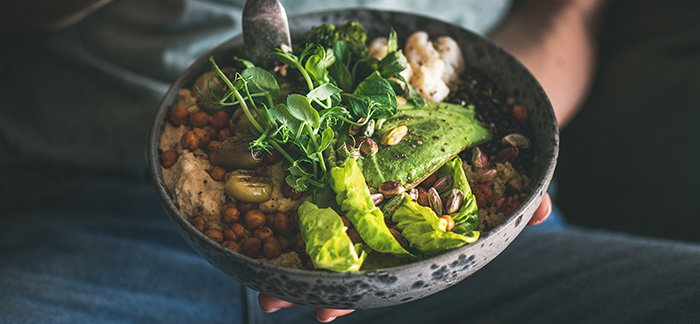
Needing more energy? Even small changes in our daily diets can have profound long term health benefits. Have you ever considered plant protein? They are proteins that are found in plant sources, and there is an abundance of them. Plant protein comes in a variety of tastes that can be light on the purse strings, but it’s the health benefits that really pack the biggest punch.
What makes plant proteins most noteworthy is that they always come packaged full of added vitamins, minerals, fibre and antioxidants. Some plant proteins contain good amounts of healthy fats too. Beans, nuts, seeds and whole grains are all plant proteins that pack a nutritional punch. So it is for good reason that many people are taking stock of the source of their protein in their diets.
Everyone can benefit from adding more plant proteins to their diet. It’s knowing what they are and how to add them to dishes where one can sometimes get unstuck. So below are some of the plant protein champions, their other health benefits, and how you can add them to dishes.

- Tempeh is a great source of protein, it is made from fermented whole soybeans and provides iron, calcium, and B vitamins. Due to tempeh’s fermentation it acts as a probiotic and can also lower your cholesterol. Tempeh is a very versatile ingredient and can be added to tacos, salads, and be made into tempeh burgers and tempeh bacon.

- Lentils are legumes (the bean family) they are a powerhouse for protein with added benefits of fiber, iron, vitamin B, and folic acid. Lentil dahl is a super flavoursome Indian dish with lentils as the protein star. Lentil can easily be added to soups and stews and pair well with cheese if your diet allows.

- Edamame are fresh unprocessed soybeans so it’s packed with protein and folate. You can buy them fresh or frozen. You can eat edamame as a snack with some salt and garlic, or as a meal in an edamame and corn salad.

- Hummus is a delicious Mediterranean side dish made out of blended chickpeas. It is high in protein and has the added benefit of iron, folate phosphorus, and vitamin B. Hummus can be used as a creamy dressing, snack, or as a side dish.

- Oat meal (all whole grains are great sources of plant protein). Include oats as one of your regular breakfast options with some fresh cut fruit, and a drizzle of honey, and start your day with a boost of protein!
Protein are macro nutrients and play a critical part in our body’s growth, maintenance, and repair so it is important to add some plant form of protein to each meal of the day.
Latest research has found that there is little to no difference of how plant protein and animal protein are absorbed into the body. With this knowledge, choosing the overall ‘packaging’ of protein becomes an important decision as we look to create healthier life styles for us and our loved ones.
Date Published: 13 March 2023
